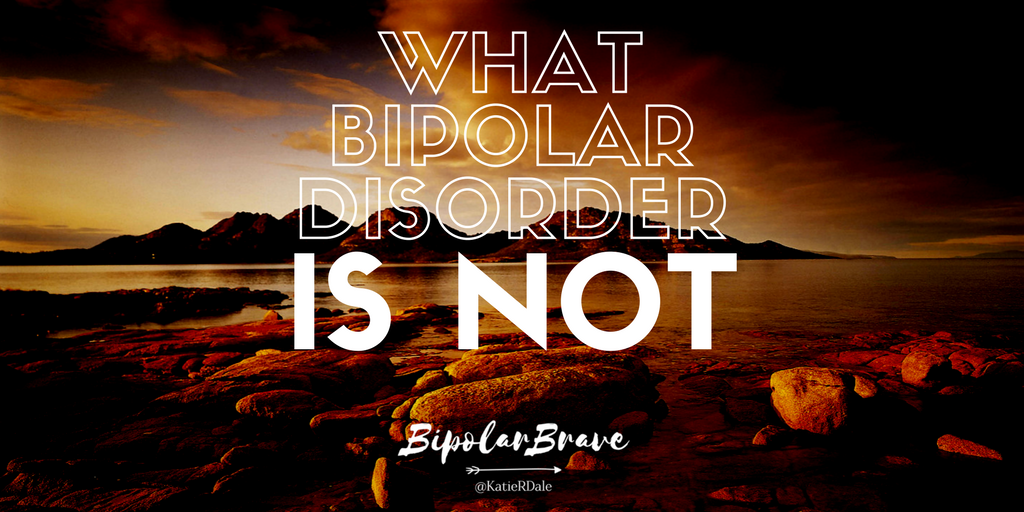Bipolar disorder manifests itself differently among those whom it inhabits. There are common denominators amongst those with the diagnosis, but because each person is unique in their genetic makeup, personality, and how they react to life, there are factors that vary the manifestation of the disorder. Bipolar disorder is a fiery disease that leaves each victim it inhabits with invisible scars and burns. This is a disorder that preys on our weaknesses and can magnify moods, both good and bad, in a disproportionate manner. We see things differently under the influence of bipolar disorder. Our perceived reality is our reality – not the truth, necessarily. It’s a scary place to be. But by no means is bipolar disorder a disease that is beyond reckoning with. There are many medications and therapies that one can find to combat the squalls of mania and depths of depression. The journey to finding those exact dosages is often one of trial and error, hit or miss, and a patient pursuit of the ultimate goal: healing. To refute the misguided beliefs and opinions that onlookers may have regarding this illness, I assert the following statements.
Bipolar disorder is NOT unmanageable. To clarify, there are certain things we must dispose of in our perceptions regarding bipolar disorder. We may associate the disorder with mental illness and immediately infer the person with this particular disorder is a caricature of unbecoming sizes. Too often, those struggling with this disorder try to self-medicate with drugs and alcohol, consequently leaving onlookers with an impression that the disease cannot be treated. The fact of the matter is, bipolar disorder is not an unmanageable illness. The proof is in the many lives like mine that have reached a place of normal living and a healthy mind. We are not subjected to the extreme highs and lows of this mental illness, because we take our medicine, we go to therapy and we find victories in taming this disorder.
Bipolar disorder is NOT a personality flaw. To be sure, our character is defined by the choices we make and the faithful traits we develop over time. As much as bipolar disorder can affect and influence these things, there is a point that the disorder, left untreated, may manifest itself to such a degree that you cannot reckon with the person in their bipolar state of mind. This may be a point where you must consciously choose to separate the effects of the disorder from who you know the person to be. There was a time when I acted considerably out of character while off my medication, and this was a direct result of not taking my medication. While choosing not to take my medication may reflect negatively on my character some, ultimately, I could not fully control my thoughts, actions and behaviors under the influence of such a disorder. My bipolar disorder caused me to act in some crazy ways, but had I been in my right mind, I would never have considered acting out in such manner. The choices I make while I’m taking my medication and in my right mind tell me that my true character is determined by what I do when I am stable.
Bipolar disorder is NOT an isolated episode. Bipolars cannot expect to outrun the disorder their entire lives. It is a recurring illness that is currently not curable, so if not properly and persistently treated and approached, it can be a repetitive force overtaking a person’s entire life, for as long as they let it. I thought after eight years without any bipolar episodes that I would be fine without my medication, that maybe I had beaten it. Yet when I did stop my medication, I experienced an altered reality, deceiving myself to believe all the more that I didn’t need my medicine. This only compounded the problem and I denied taking medications because I didn’t trust those administering them in the hospital and didn’t think I would get better on them. Eventually, I submitted to the counsel of my doctors and returned to the dosage I had before, and came back to reality. I have taken my medication daily for the last five years to ensure I stay in reality.
Bipolar disorder is NOT a curse. I’m surprised by how many people, especially with a faith background, deny the disorder and classify it as a spiritual curse or a demonic oppression. It’s not. There are many people who go to a minister first before seeing a doctor or psychologist, and will seek help from their church leaders before consulting those with medical training. Unfortunately, bipolar disorder is not always studied or known about in depth by these paragons of the faith, who often are unprepared to lead people to the right resources to get the help we need. Whoever the first responders to these types of crises are – they of all people need to have the right resources. There are resources out there, some even within the church, that can help when these situations arise. Other church members may have counseling or psychiatric practices that church leaders can refer to. There are programs that can be organized by churches, like Fresh Hope for Mental Health, which are prepared to answer questions about faith and mental illness. It is not a curse.

What do you think?